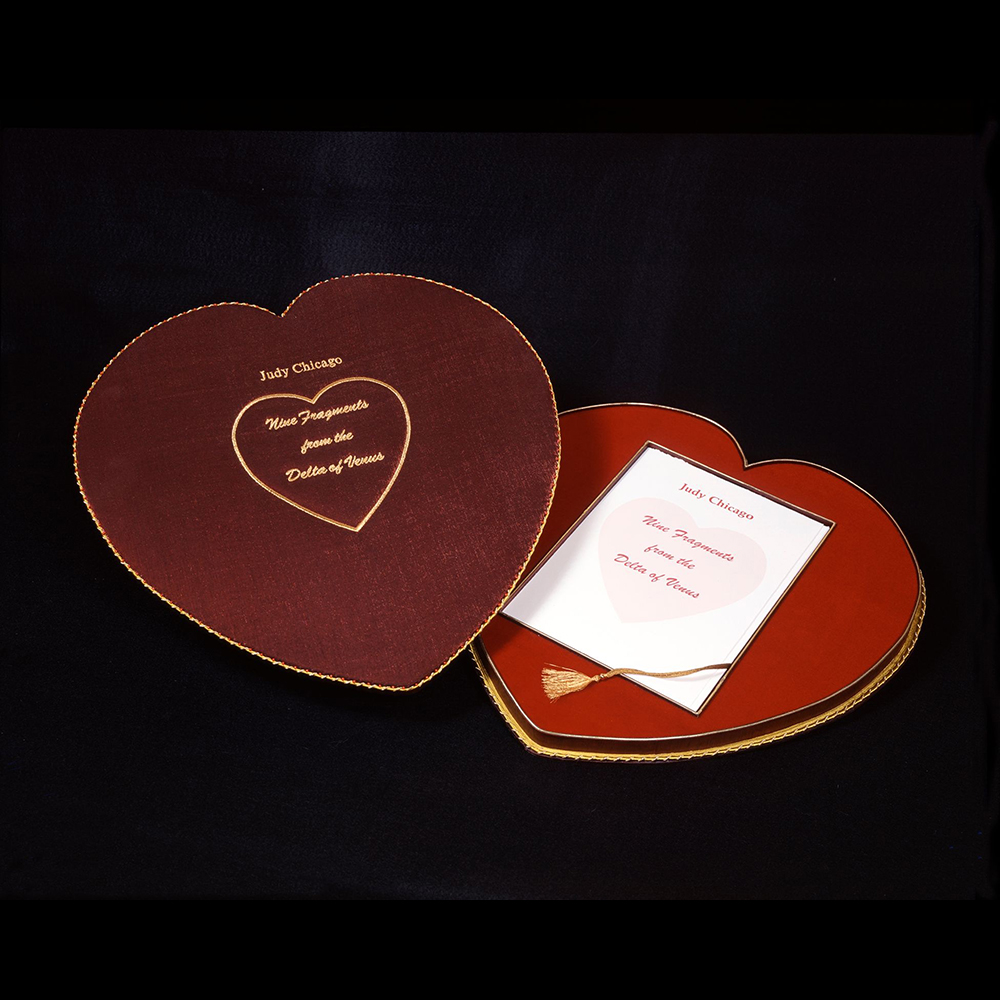Artwork Description
Judy Chicago – Nine Fragments from the Delta of Venus
Dimensions: 17.75 x 17.75 x 1.5″ finished size / 10.25 x 7.63″ paper
Year: 2004
Medium: nine-color etching and aquatint print portfolio
Edition: 3/45
Judy Chicago’s “Nine Fragments from the Delta of Venus” is an erotic series with an introduction by Anais Nin. Chicago had a friendship with the great French female writer, and Chicago writes in her autobiography about how Nin encouraged her to express her feelings about being a woman artist, in writing–to write about her creative ideas. This prompted Chicago to write nine books, and her friendship with Nin was fundamental in her development as an artist. Thus, this limited edition is an important work in the history of Chicago’s career, as well as in the history of art and of women in the arts.
-Tonya Turner Carroll
Judy Chicago is a pioneer of feminist art since the early 1970s, Judy Chicago advocates issues of women’s liberation and independence through diverse media including paintings, drawings, sculptures, and collaborative installations. Her iconic work “The Dinner Party,” (1974—1979), which is now permanently installed in the Brooklyn Museum of Art’s Elizabeth A. Sackler Center for Feminist Art, is widely regarded as one of the most influential works of feminist art. With Miriam Schapiro, Chicago co-founded the Feminist Art Program at the California Institute of the Arts—the first program of its kind—and collaborated on the formative installation Womanhouse (1972). More recently, Chicago has expanded upon her efforts in gender politics, focusing on broader social issues. Her work has been exhibited extensively at venues such as the Los Angeles Museum of Contemporary Art, the New Museum, the Centre Pompidou, the Whitney Museum, and the Jewish Museum in New York.
Judy Chicago speaks of her work as “trying to infuse women and women’s history with a sense of the sacred and the valuable, because there are all these things associated with women that have been devalued: our bodies, our crafts, our history,” continuing on to say she “tried to bring the same thing to bear on [her] work.”

